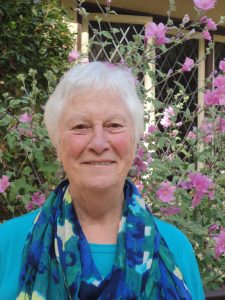- All
- Wisdom
- We Stand on Their Shoulders
- Vocation
- Uncategorized
- Stories Seldom Heard
- Spirituality
- Social Justice
- Prayer
- Peace
- Oneness
- Love
- Letting Go
- Lent
- Joy
- Inspirational Images
- Hope / Healing
- Holy Week
- Gratefulness
- God's Presence
- General News Stories
- Forgiveness
- Finding God
- Faith
- Easter
- Dominican Saints
- Discipleship
- Courage
- Christmas
- Catholic Sisters Week
- Care of the Earth
- Blessing
- Beauty
- Advent
- #justiceOPportunity
Psalm 95: An Opportunity of Grace
Sr. Patricia Bruno, OP

247th Edition February 1, 2020
Psalm 95: An Opportunity of Grace
Retreat Weekend at Santa Sabina Retreat Center, San Rafael, CA – Patricia Bruno, OP
Grace Abounds — Exploring Our Own Spiritual Narrative
May 28 – 31, 2020
Grace abounds when we take the time to listen. What decisions, unexpected choices, joys and surrenders have deepened our faith and brought us to our contemporary religious practices. Using scripture, contemporary writings, poetry and journaling, we will discover the moments of grace that have formed us and the Wisdom that enables us to live more fully into our unfolding futures with hope. Join us during this weekend as we each explore our own spiritual narrative.
Thursday, May 28, 2020 through Sunday, May 31, 2020
Fee for the program with 3 nights lodging and meals: $475
Register by April 15, 2020: $400 Commuter fee includes meals: $375
Register by April 15, 2020: $350 Registration deposit Registration deposit: $200
Welcome to Stories Seldom Heard. I would especially like to welcome the members of St Joseph’s Parish, Stuart, FL. When I was at St Joseph’s Parish, a couple of women asked if I was giving another retreat because they would like to attend it. I said, “Yes, in May at Santa Sabina Retreat Center in San Rafael, CA.” The laughter that followed proved that all of us realized that there’s a long stretch of property between Stuart, FL and San Rafael, CA. But they quickly commented that it might not be completely out of the realm of possibility since they had never been to San Francisco. As I think back on the conversation, I think that kind of trip would be considered a Holy Pilgrimage.
This conversation, the announcement of the retreat at Santa Sabina, and the book I recently read The Second Mountain by David Brooks, underscore our need to reflect on our spiritual lives: our choices and our paths to God. David Brooks, as you might know, is a journalist for the New York Times. He and Mark Shields share their weekly political insights on National Public Television. He is also the author of many books. The Second Mountain explores the four commitments that he believes give meaning and purpose to life: our relationship and responsibilities “to a spouse and family, to a vocation, to a philosophy or faith, and to a community” (1). As Brooks examines these areas, he offers a wealth of insights from his vast reading experience, as well as from his personal life. Brooks grew up a Jew and is steeped in his faith tradition. The biblical stories helped form his identity. Even though in later life he converted to Christianity, his Jewish roots continue to inform his conscience and decisions. Brooks’ faith journey encourages us to explore our own and inspires a discussion of how our life experiences and learnings have deepened and matured our faith. The essential qualities of any seeker are echoed in the refrain of Psalm 95. “If today you hear God’s voice, harden not your hearts.” The refrain counsels us to abandon our defenses and to listen to God’s voice which, of course, requires a vulnerability and trust on our part. Yet, we are able to do open our hearts to God because God has become totally vulnerable to us in the person of Jesus.
No matter what religion we profess or spiritual path we follow, the process of resistance and grace throughout our lives affects our relationship with God, one another and the world. Psalm 95 speaks of the resistance of the Israelite people as they murmured against God in the wilderness: the wilderness of doubt and disappointment. In their fear and frustration, they turned their backs on God. Yet, God didn’t turn God’s back on them. God heard their call for help and responded.
We might not be trapped in a physical desert as the Israelites were, but it is easy to feel trapped. What we consider “the good life” can change quickly: a loss of employment, health issues, political strife, personal conflicts, spiritual darkness, earthquake, flood, to name a few. All of these experiences can harden our hearts so that we might feel God has forgotten us. Tragedy can blind us to the goodness around us and the graces that even the most difficult situations offer us.
The refrain of Psalm 95 is “If today you hear God’s voice, harden not your heart.” It reminds us that in good and difficult times we need to listen to God’s voice in scripture, prayer and in the world. The stories in scripture are “big” stories. When we know them well, they can help us interpret our own lives in the light of faith. Sometimes it is difficult to see how the biblical stories are played out in our smaller lives, but we have help connecting our experiences with those of our biblical ancestors. When we study scripture and/or go to Mass, the teachers and preachers help make the connections for us. As we listen to a homily, the preacher not only offers us insights into the biblical stories, but also raises our awareness so we can see God working within the situations we meet. Over the years as we study and listen to the biblical stories, they become our own personal stories: writ large. They help form our consciences. They affect our choices and the way we treat others and our environment.
“If today you hear God’s voice, harden not your hearts.” This refrain from Psalm 95 comes to us as a warning. It is easy to allow our hearts to harden. The pain we hear each day often feels overwhelming. Yet, it is here that we have some control. We are the gatekeepers of our spirits. We can choose how much pain to allow our hearts to feel before we become paralyzed by it. This does not mean we become disinterested in or detached from the cries of those suffering, but it implies a mature self-knowledge and a desire to hear in prayer and discussion with others how best we can respond.
Hearing God’s voice will sound different to each of us. That’s the power of prayer and faith. Each of us is called to hear God’s voice where we are. There are so many variables: age, physical and mental abilities, responsibilities and more. The invitation of Psalm 95 is to listen and respond. That is a grave responsibility. Yet, the “proof” of our listening and response “will be in the pudding,” as they say. True listening and a malleable heart, according to Psalm 95, result in inner peace and joy and our responses to others have become fuller and more self-giving. We have experienced what Jean Vanier confirmed in his life. We continue to respond to those who are in need, those who in the world’s eyes and vocabulary are considered weak. But because we understand our own weakness and common humanity, another person’s weakness carries within it a secret power: the power to open our hearts. The one who is weaker can call forth the powers of love in the one who is stronger (2). Is this not the paradox of grace?
- Brooks, David, The Second Mountain: A Quest for a Moral Life, Random House, New York, 2019. Page, Inside Cover.
- Ibid, Page 222.
“Stories Seldom Heard” is a monthly article written by Sister Patricia Bruno, O.P.
Special thanks to Mary Ellen Green, and Maria Hetherton who have helped in editing this article.
